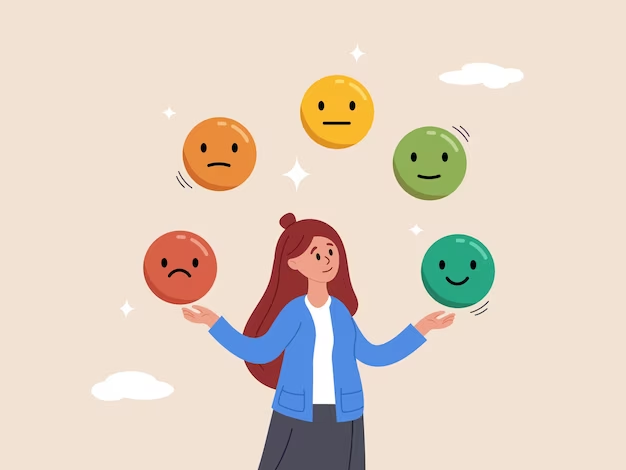How to Control Your Emotions: Mastering the Art of Inner Harmony
Our emotions are a powerful force. They can fuel our greatest achievements and plunge us into our deepest despair. Learning how to control your emotions is a valuable life skill, one that can empower you to navigate the ups and downs of life with greater ease and resilience.
While the idea of completely controlling your emotions might seem unrealistic, the goal is not to suppress them entirely. Emotions are natural and healthy responses to situations and experiences. The key lies in managing your emotions, understanding them, and expressing them in healthy ways.
This article dives into the world of emotional control, offering practical tips and strategies to help you navigate your emotional landscape.
Why is Controlling Your Emotions Important?
Controlling your emotions offers a multitude of benefits:
- Improved Decision-Making: When emotions run high, clear thinking can become clouded. By managing your emotions, you can approach situations with a calmer and more rational perspective, leading to better decision-making.
- Stronger Relationships: Uncontrolled emotions can damage our relationships with loved ones, colleagues, and even strangers. Learning to express yourself clearly and constructively fosters stronger and healthier connections.
- Reduced Stress and Anxiety: Chronic emotional turmoil can take a toll on your mental and physical well-being. Mastering emotional control helps you manage stress and anxiety more effectively.
- Increased Self-Confidence: When you feel in control of your emotions, you project a sense of confidence and self-assuredness. This can empower you to take on challenges and navigate difficult situations with greater poise.
- Improved Overall Well-being: By managing your emotions effectively, you can create a more peaceful and balanced life, enhancing your overall well-being.
Understanding Your Triggers: The First Step

The first step to controlling your emotions is understanding what triggers them. Pay attention to situations, people, or events that typically evoke strong emotional responses. Here are some tips:
- Journaling: Keeping a journal is a powerful tool for self-reflection. When you experience a strong emotion, jot down the situation, your thoughts, and your physical reactions. Over time, you may identify patterns in your triggers.
- Body Awareness: Our bodies often communicate our emotions before our minds can process them. Pay attention to physical cues like increased heart rate, sweating, or muscle tension. Identifying these early warning signs can help you address your emotions before they escalate.
- Mindfulness: Mindfulness practices, such as meditation, can help you become more aware of your thoughts and emotions in the present moment. This allows you to observe your emotions without judgment and choose a more mindful response.
Practical Strategies for Managing Your Emotions

Once you understand your triggers, you can equip yourself with strategies to manage your emotions effectively:
- Take a Breath: When you feel overwhelmed by emotion, take a few slow, deep breaths. This simple act can help calm your nervous system and give you a moment to collect yourself.
- Positive Self-Talk: Our inner voice can be a powerful tool. Replace negative self-talk with positive affirmations. Instead of saying “I can’t do this,” tell yourself “I can handle this challenge.”
- Challenge Negative Thinking: Our thoughts often influence our emotions. When you find yourself dwelling on negative thoughts, challenge them with more realistic and positive perspectives.
- Relaxation Techniques: Techniques like progressive muscle relaxation or guided imagery can help reduce stress and anxiety, allowing you to manage your emotions more effectively.
- Healthy Lifestyle Habits: Prioritize self-care activities such as regular exercise, sufficient sleep, and a balanced diet. Physical well-being has a significant impact on mental health, contributing to greater emotional stability and resilience.
- Express Yourself Constructively: Sometimes, the best way to manage emotions is to express them in a healthy way. Talk to a trusted friend, family member, or therapist. If you need to express frustration, do so assertively, but not aggressively.
- Healthy Outlets: Engaging in activities you enjoy, such as exercise, spending time in nature, or listening to music, can be a great way to release pent-up emotions and improve your mood.
- Seek Professional Help: If you’re struggling to manage your emotions on your own, don’t hesitate to seek professional help from a therapist or counselor. They can provide valuable support and guidance.
Remember: It’s a Journey, Not a Destination
Learning to control your emotions is a lifelong journey. There will be setbacks and moments where you feel overwhelmed. The key is to be patient with yourself, celebrate your progress, and keep practicing these strategies. With dedication and time, you’ll develop the skills to manage your emotions effectively and create a more peaceful and fulfilling life.








One Comment
Comments are closed.